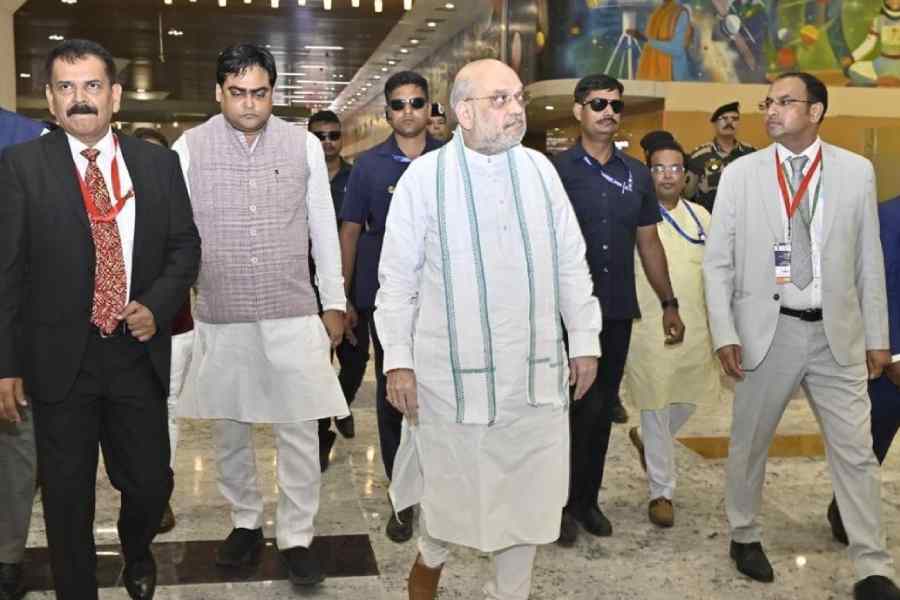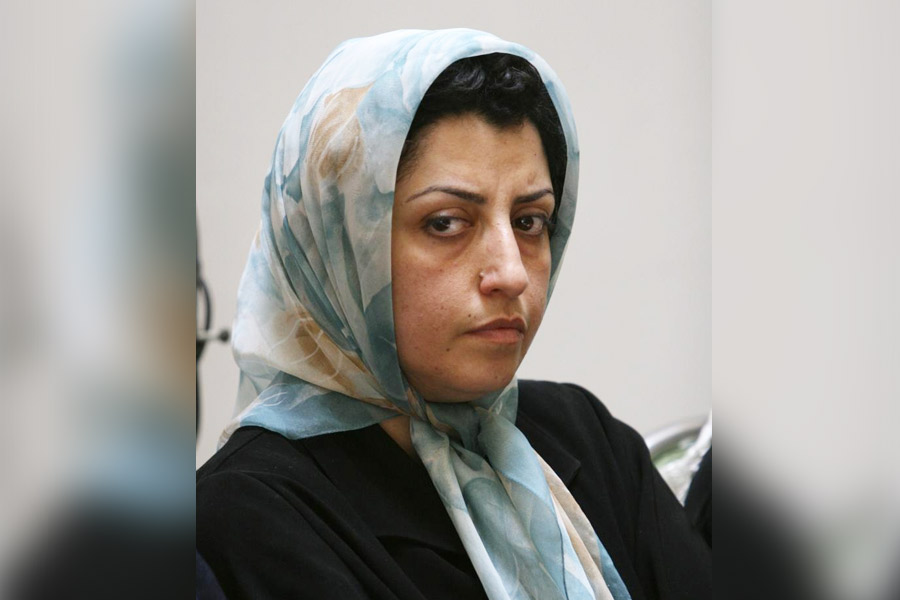Union home minister Amit Shah on Sunday raised the BJP’s pet subject of “infiltration” from Bangladesh during his first visit to Bengal since his party’s stumble in the Lok Sabha polls from the state.
Shah claimed that illegal immigration from across the eastern border was disrupting “peace” in Bengal and hindering its “prosperity”, reiterating a narrative his party has aired repeatedly in border states to try and polarise voters along religious lines.
“Bring change to Bengal in 2026 (when Assembly polls are due)…. (A BJP-led state government) will end infiltration and ensure peace in the state,” he said.
“When there is no opportunity for legal (trans-border) movement of people… illegitimate methods of movement arise, which impacts the peace of the nation.… There can be peace in Bengal only after infiltration stops.”
Shah had in the run-up to this year’s Lok Sabha elections controversially compared Bangladeshi immigrants to “termites”, accusing them of eating up India’s resources.
However, his chest-thumping claims about the BJP winning 35 of Bengal’s 42 Lok Sabha seats fell flat, with the party’s tally falling to 12 from the 18 it won in 2019.
His comments on Sunday came at Petrapole, a land port on the Bangladesh border where he inaugurated a new passenger terminal and a cargo gate.
The BJP has long claimed that illegal immigration from Bangladesh has affected peace and prosperity in Bengal besides changing the demography in the districts along the state’s porous, 2,200km border with the neighbour.
While the party has made considerable political gain in the border districts over the past few years, the narrative has failed to yield the ultimate prize: power in Bengal.
But times may have changed, a political observer said, referring to the transformation in the political landscape of Bangladesh since August 5.
“The (BJP) narrative may have failed in the past but it is likely to be more effective in the aftermath of the (fall of the) Sheikh Hasina government, with Bangladesh witnessing the rise of anti-India fundamentalist forces,” the observer said.
He said the people of Bengal were keenly aware of the latest developments in Bangladesh, such as the attacks on Hindu minorities and the growing clout of Islamist and anti-India forces.
“The Bangladesh economy is under stress and people are looking at every opportunity to come to India. During Hasina’s rule, the incentive to cross over illegally into India had vanished as the Bangladesh economy was doing well,” he added. “Now, not only is the country’s economy doing badly, its secular and liberal people are under attack. So, the possibility of infiltration has gone up.”
Shah said stopping illegal immigration would lead to an enhanced partnership between India and its neighbours like Bangladesh, Bhutan, Nepal and Myanmar.
“The party (BJP) believes that a hard-line stance on infiltration will resonate with voters....,” a city-based political analyst said.
Shah said an increase in trade and legal cross-border travel through land ports would reduce the threat of infiltration and smuggling.










